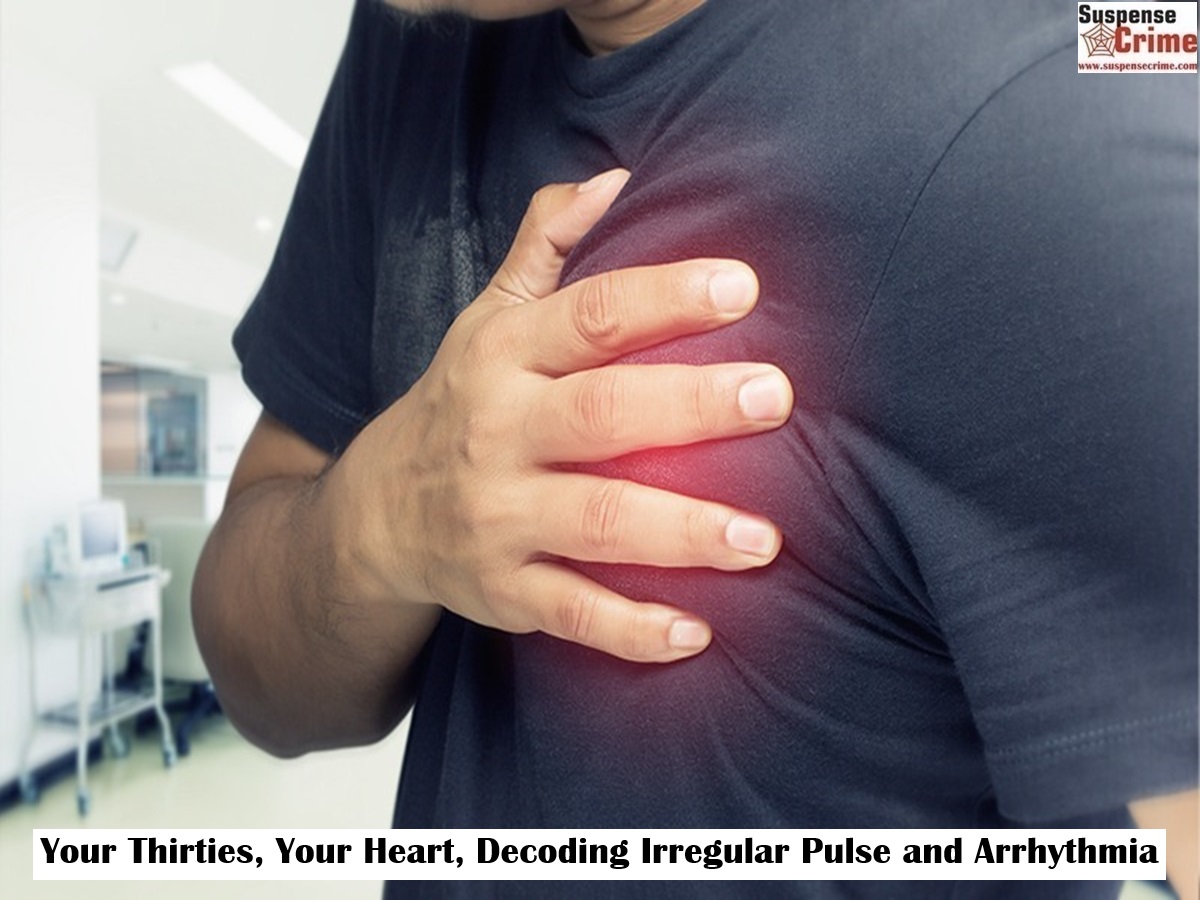
Suspense crime, Digital Desk : That fluttering feeling in your chest, a sudden skipped beat, or a heart race out of nowhere – if you're in your 30s, you might dismiss these as stress or too much coffee. But an irregular pulse, medically known as arrhythmia, isn't just a concern for the elderly. More young adults are experiencing these alarming heart rhythms, making it crucial to understand the causes, symptoms, and when to seek professional help.
What is Arrhythmia?
An arrhythmia occurs when the electrical impulses that coordinate your heartbeats don't work properly, causing your heart to beat too fast, too slow, or irregularly. While some arrhythmias are harmless, others can be serious, potentially leading to complications if left unaddressed.
Why Are People in Their 30s Experiencing It?
While underlying heart conditions can be a cause, many cases in younger adults are often linked to lifestyle factors common in this age group:
- Stress and Anxiety: The high-pressure demands of career and family life in your 30s can significantly impact heart rhythm.
- Caffeine and Alcohol: Excessive consumption of stimulants like coffee, energy drinks, and alcohol can trigger irregular heartbeats.
- Poor Sleep Patterns: Lack of consistent, quality sleep disrupts the body's natural rhythms, including cardiac function.
- Dehydration: Insufficient fluid intake can affect electrolyte balance, which is vital for proper heart function.
- Nutritional Deficiencies: Imbalances in electrolytes like potassium and magnesium can also play a role.
- Medications: Certain over-the-counter or prescription drugs, including some cold medicines or asthma inhalers, can cause palpitations.
- Thyroid Issues: Both an overactive (hyperthyroidism) or underactive (hypothyroidism) thyroid can affect heart rate and rhythm.
- Underlying Heart Conditions: Though less common in the 30s, structural heart problems, genetic predispositions, or conditions like myocarditis (heart muscle inflammation) can also be causes.
Common Symptoms to Watch Out For:
An irregular pulse can manifest in various ways. Pay attention if you experience:
- Palpitations: A feeling that your heart is fluttering, pounding, skipping beats, or racing.
- Lightheadedness or Dizziness: Especially when the irregular beat causes a temporary drop in blood pressure.
- Shortness of Breath: Feeling winded even with minimal exertion.
- Chest Discomfort or Pain: A sensation of tightness or pressure in the chest.
- Fatigue: Persistent tiredness without a clear reason.
- Fainting or Near-Fainting Spells: This is a red flag and requires immediate attention.
When to Seek Help:
While occasional skipped beats might be benign, it's crucial not to self-diagnose. You should definitely consult a doctor if:
- Your symptoms are persistent or worsening.
- The irregular pulse is accompanied by severe chest pain, extreme shortness of breath, dizziness that doesn't go away, or fainting.
- The arrhythmia significantly impacts your daily life or causes anxiety.
A doctor, likely a cardiologist, can perform tests like an ECG, Holter monitor, or echocardiogram to accurately diagnose the type of arrhythmia and its underlying cause, guiding you towards the appropriate treatment or lifestyle changes. Taking your heart health seriously in your 30s can lay the groundwork for a healthier future.
Read More: Forget Potato Chips This Homemade Besan Papad is the Star of My Holi Menu

 Share
Share



